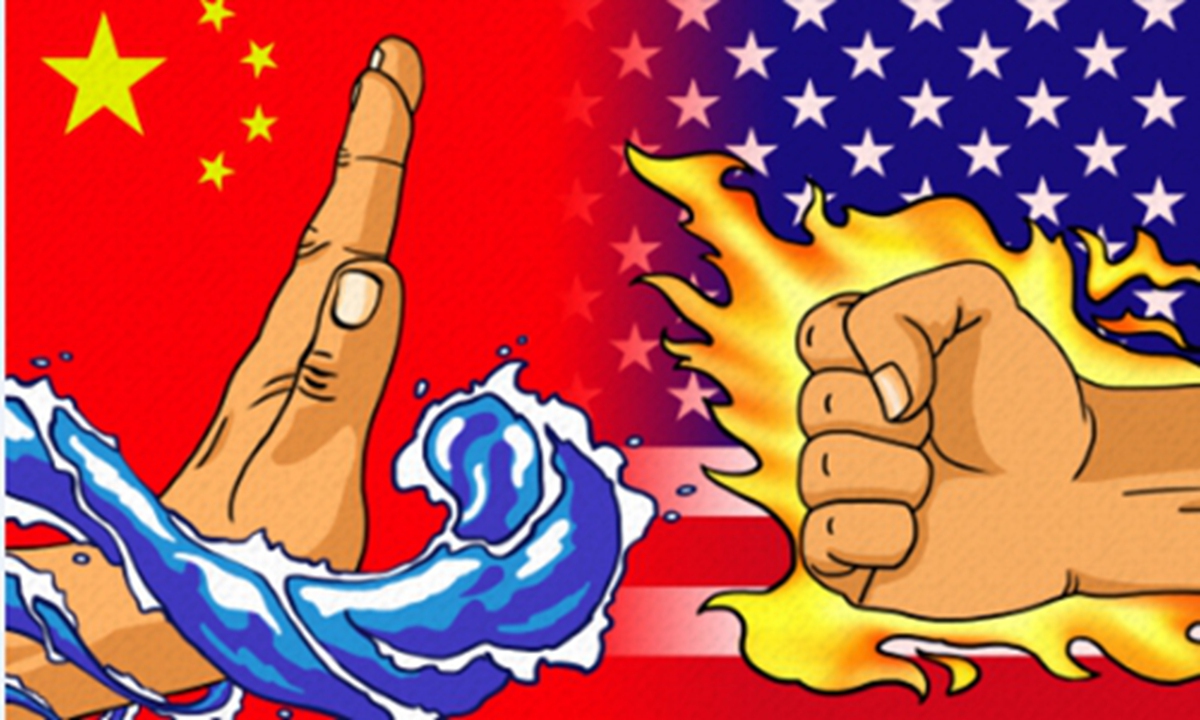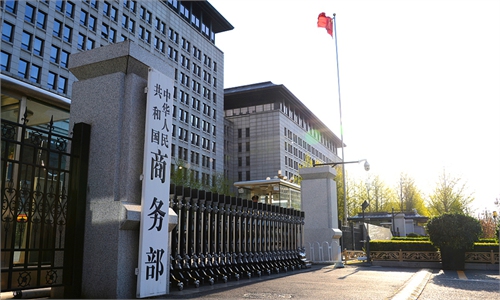
Illustration: Liu Rui/GT
While high-level exchanges and constructive communications between China and the US have sent certain positive signals, it doesn't seem to have slowed the US in hammering out sanctions against China. But that doesn't mean China will just roll over and take the reckless crackdown by the US.No one can underestimate China's resolve, which is being reinforced by ratcheting-up US pressure, to protect its own legitimate interests and fight back against US hegemony when China has to.
China opposes the US in waging a trade or tech war in the guise of competition and will not flinch from competition, but the so-called competition from the US is clearly unfair, Chinese Ambassador to the US Xie Feng said at the Aspen Security Forum on Wednesday.
The Chinese people will not remain indifferent, and the Chinese government will not sit idly by, Xie said.
His remarks came as the Biden administration is reportedly preparing an investment screening mechanism designed to cut the amount of US money invested in Chinese entities involved in areas including semiconductors, quantum computing and artificial intelligence (AI).
Also, the US Commerce Department is planning to update some export controls to make it more difficult for Chinese companies to obtain AI-related chips from companies such as Nvidia.
Under such circumstances, how to improve China-US economic and trade relations, which is probably the world's most consequential economic relationship but looks increasingly antagonistic, has become the focus of attention in the international community.
As Washington is pushing Beijing into a corner, it is also reducing its own room for maneuver, especially as China has realized that communication alone will not stop the US from stepping up pressure on it, and it's time to try a different tack.
The US has put more than 1,300 Chinese companies on various sanctions lists, and the list of names could grow even longer. In the face of continued US suppression of trade and high-tech exchanges with China, the response from the Chinese side has largely been restrained, as China has been trying to prevent the consequential relationship from derailing by strengthening communication and cooperation.
But such goodwill should not be taken for granted and be misinterpreted as a lack of means to push back. If the Biden administration is committed to an antagonistic economic relationship with China, then from the perspective of protecting its own economic and corporate interests, it is essential for China to take counteractions.
A few legislative developments may offer some guidance as to what China could do in fighting back. For instance, China's Foreign Relations Law, which took effect on July 1, stipulates that China has the right to take necessary countermeasures in accordance with the law against acts that violate international law and the basic norms governing international relations and endanger China's sovereignty, security and development interests.
Also, China has established the Unreliable Entity List mechanism, aiming at resisting unilateralism and protectionism. The criteria for listing include foreign entities that block and shut supply chains, take discriminatory measures for non-commercial reasons, and cause actual or potential damage to Chinese companies and industries.
All these legislative measures could serve as a reminder for foreign entities that they should not be blindly subject to US sanctions against China. If they participate in the US sanctions, China's countermeasures may cause them to lose the Chinese market or see their interests hurt in the Chinese market. The potential risk is a factor that must be taken into account in their decision-making, which is also China's means of offsetting the impact of US sanctions.
Of course, China will suffer losses if it retaliates in the same way as the US has hit China. However, if this is the only way to protect China's interests, the losses may still be necessary.
There will be no turning back if China decides to take these countermeasures. Washington is advised to change its China policy before it is too late.


